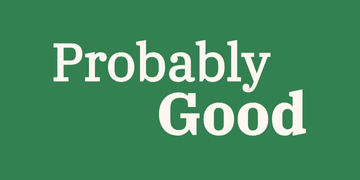Career decisions are big decisions—ones worth thinking carefully about.
That’s why a lot of our top advice focuses on tools to help you plan and strategize your career to help the world.
But let’s be honest.
It’s much easier to think about your career in the abstract than to take concrete action. Without a plan or commitment to do something, it’s all too easy to let life take its course and not make a change.
That’s why you need to find ways to put your reflection and investigation into action. What is something you can do today, this week, this month that will help you move towards a more impactful career path?
Take action
No matter what stage you’re at in your career planning, there’s something you can do to get the ball rolling. Here are a few options to explore depending on your goals and circumstances:
- Apply for a free advising call. If you’ve read through all 7 articles, there’s a good chance you’d be a great fit for our free 1-on-1 advising calls with our team. These personalized advising sessions are a great way to talk with someone about your options and get connected to professionals in a cause area or field you’re interested in. Apply here!
- Learn a new skill. Gaining skills—whether it be a formal qualification, deeper knowledge of a subject, or a broadly applicable skill—can be an actionable way to gain career capital and prepare for a career in any field. You can take a DIY approach and try to find resources—whether it’s a well structured course, textbook, or reading list or your own study plan based on your own exploration.
- Gain a qualification. Spend an hour figuring out what specific qualifications would help you get a job you could see yourself in. Such qualifications could include specific degrees (undergraduate and postgraduate), fellowships, certificates, awards, grants, or even free online courses. If you want a quick way to discover the entry requirements for high-impact career paths, you can consult our career profiles or take a look a job descriptions for roles you’re interested in. When you have an idea of what’s needed, create a shortlist of three or more courses/programs/qualifications you want to work towards.
- Gain experience to test your personal fit. If you’re earlier in your career, try to find at least three internships or volunteering opportunities you’d be excited about and that suit your experience. You can also consult our high-impact job board, which often includes internship opportunities. Alternatively, try to identify and complete a task that’s representative of a career you’re interested in. For instance, if you’re interested in a writing-heavy role such as journalism, you could write a short article or blog post on a topic you think is important or interesting. Or for research-heavy careers, you could read an academic article on a topic you’re interested in and summarize its key points.
- Generate concrete options. Set a timer (e.g., 30 minutes). Before the timer’s up, find at least three jobs, internships, volunteer positions, or similar opportunities that you’d be excited to apply for. Check out our high-impact job board if you want a place to start.
- Use your network. A large share of jobs are filled by personal connections. Try to identify people in your current network (such as friends, acquaintances, professors, and LinkedIn connections) who work in domains or organizations you’re interested in, and let them know you’re looking for a job. Alternatively, you could start by first looking at organizations and jobs you’re interested in, and then try to find connections that might be able to get you in touch with someone there. Unsure who to talk to? In our free advising calls we can help connect you with professionals in the field you’re interested in.
- Start applying! Try to have a goal to send out a specific number of applications by a certain date. For example, “By the end of this year, I’ll have sent out 30 applications.” You could even set a number of rejections you want to achieve. This way, you can treat rejections as successes, as well as incentivize yourself to be more ambitious with your applications.
Make a commitment
Not everyone is in the position to make a big career change, and it’s okay if some of your next steps seem small. The point of taking action isn’t to change everything overnight; it’s to make progress at a pace that feels right for you.
To keep yourself moving forward, the most important thing you can do is commit to doing something. For instance, try to decide on a specific task or goal—maybe one from this list—and create a timeline for when you want to accomplish it. You can tell a friend to try to keep yourself accountable, or create a clear deadline in your calendar to remind yourself. No matter what exact next step is right for you, establishing specific objectives will help keep you accountable and push you even closer towards the career you want to have.
Share your feedback
Now that you’ve read through some of our material, we’d love to hear from you!
- Have we helped change your thinking or career plans?
- Is there anything you found especially helpful?
- Is there anything we can do better?
If you have thoughts on any of these questions—or if you’d like to share anything else—please let us know using the form below!
That’s it!
You’ve made it—this is the last article of our core advice series! Now that you’ve done a lot of reading and exploring, we really encourage you to keep up the momentum and take some sort of action. Nothing changes if nothing changes. Now’s the time to start working towards a career that’s both good for you and good for the world.

